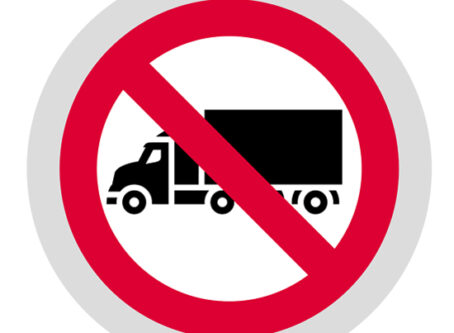Trucking company withheld information, taking insurer off the hook for hazmat violation
An insurance company for Dual Trucking is off the hook for covering an environmental violation on the company’s property, in a case highlighting the consequences of withholding information on a policy application.
On May 5, a federal district court in Montana dismissed a case filed by Houma, La.-based Dual Trucking against Admiral Insurance. The trucking company claims Admiral Insurance breached its contract by not defending or indemnifying it under six policies for violations handed out by the Montana Department of Environmental Quality. However, the court found that Dual Trucking left out pertinent information in its policy application, thus absolving Admiral Insurance from providing coverage for the incident.
In 2011, Dual Trucking leased three tracts of land in Montana for its operations. In July 2012, the Montana Department of Environmental Quality received a complaint accusing Dual Trucking of placing oilfield exploration and production waste on the property without a solid waste management facility license. The department sent a warning letter to the trucking company in September 2012.
Per the warning letter, the environmental department advised Dual Trucking that if allegations were correct it was operating in violation of the Montana Solid Waste Management Act. It had 15 days to hire an environmental consultant and create a corrective action plan for cleaning up the waste. Additionally, the trucking company had 30 days to legally remove and properly dispose of the waste and 60 days to provide the state department a cleanup report completed by the environmental consultant.
However, Dual Trucking disputed the significance of the warning letter, claiming it reported an unsupported hearsay allegation void of any facts and that it was merely advisory.
The Montana Department of Environmental Quality stated in the letter that failure to follow stated requirements would result in formal enforcement action that could include penalties.
Subsequently, Dual Trucking applied for two environmental impairment liability policies from Admiral Insurance. The first policy period ran from October 2012 to October 2013, with the second policy period good for another year from October 2013. Those policies provided coverage for certain pollution conditions on Dual Trucking’s property. In the application, the trucking company was asked whether it operated in compliance with applicable environmental laws and whether it knew of any conditions on the property that could lead to a claim. Dual Trucking neglected to mention the September 2012 warning letter from the Montana Department of Environmental Quality.
Additionally, Admiral Insurance issued four contractor pollution liability policies to Dual Trucking. Those policies were for the same periods as the environmental impairment liability policies.
After those policies were issued, the Department of Environmental Quality sent three violation letters to Dual Trucking within two days in March 2013. On June 10, the department received a letter from Dual Trucking with an application for a Solid Waste Management Facility license. A fourth violation letter was sent to the trucking company in August 2013 informing it that it is still found to be in violation of environmental laws.
About a month later, Dual Trucking received a letter from the landowners informing it that it had breached the three lease agreements. Landowners accuse the trucking company of having “caused environmental impairment to the property” and had “used the property in a manner that has caused pollution of waterways flowing through or underneath the property.”
When renewing its insurance policies, Dual Trucking failed to mention any of the four violation letters or the breach of contract letter from the landowner.
Dual Trucking received a settlement offer from the Department of Environmental Quality in December 2013. In response, the trucking company hired someone to prepare a site characterization and environmental condition report, which it submitted to the department. In the report, the company admitted three “suspected or known release” events, which it described as nothing more than stormwater-related with a berm breach lasting three hours.
Not satisfied with the response, the Department of Environmental Quality sent Dual Trucking a fifth violation letter in April 2014. The trucking company responded by claiming it had since ceased all operations on the property in question. Regardless, a sixth violation letter was issued in June 2014.
Dual Trucking canceled its policies with Admiral Insurance in July 2014. The policy allowed a 30-day extended reporting period after cancellation. The next day, the trucking company provided Admiral Insurance with the first notice of any claims related to the environmental violations. Dual Trucking told the insurance company that the incident occurred in July 2013 and provided the sixth violation letter for proof.
In November 2014, the Department of Environmental Quality finally filed an enforcement action that dates the alleged events from July 2012 to April 2014.
Concurrently, the landowners filed a civil action against Dual Trucking for breach of contract. The trucking company then hired an environmental consulting firm to test pollution allegations. The consultant found no contamination had left the property onto neighboring property.
Admiral Insurance filed its lawsuit against Dual Trucking in February 2020. The insurance company claims that the trucking company:
- Provided alleged misstatements in its policy application, which violated the terms of the policy.
- Had knowledge of the pollution before the policy periods, which violated the policy terms.
- Rented, occupied or controlled the property, which precluded coverage.
The court agreed with Admiral Insurance, putting Dual Trucking on the hook for any penalties and litigation related to the matter. LL









